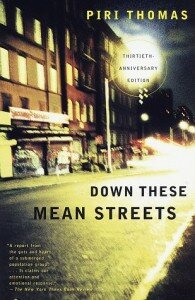 Jo Paraiso describes herself as a “bona fide tech junkie” who works passionately to support her Fremont High School juniors and seniors to become what she terms “Digi-Literatis.” These budding Digi-Literatis are using technology to conduct research, to connect with communities beyond their classrooms and even their city, and to engage civically through blogging, and community-focused senior projects. They are learning how to determine whether information they find online is credible, to conduct research using online tools and maybe most importantly the ways learning happens beyond the classroom – with peers and community members in virtual spaces.
Jo Paraiso describes herself as a “bona fide tech junkie” who works passionately to support her Fremont High School juniors and seniors to become what she terms “Digi-Literatis.” These budding Digi-Literatis are using technology to conduct research, to connect with communities beyond their classrooms and even their city, and to engage civically through blogging, and community-focused senior projects. They are learning how to determine whether information they find online is credible, to conduct research using online tools and maybe most importantly the ways learning happens beyond the classroom – with peers and community members in virtual spaces.
Jo teaches English Language Arts to 11th and 12th graders at Fremont High School in Oakland. She became part of the Educating for Democracy in the Digital Age initiative during the planning year. The initial focus of her EDDA work was on blogging, setting up personal blogs, blogs as a source for senior project research, and students engaging in academic discussions on blogs. Her motivation: “Social media provides such a powerful forum for civic engagement, and so many of my students are already adept at utilizing social media for, well, social purposes, that it’s not a hard stretch for them to carry those same skills into the classroom. It has been no end of fun for me as an educator to figure out how.”
At the end of the spring semester Jo’s seniors were working hard to meet the deadline for completing their senior project. This was not simply a paper or presentation. Jo’s students were creating presentations on platforms like Prezi. They were using their smart phones to video the Prezi presentations and then upload them to YouTube where their panel of community members could view and comment on their work.
There were times when students had to use their smart phones to research and write up their projects, and even create a survey on Survey Monkey because the computers in the school lab were not working. Their work on a range of community issues included online research, surveying members of the community and brought them in contact with a larger audience through an expanded network made possible by the Internet. “It felt like other people really cared about what you have to say – not only you but other people like you. The girls sitting next to me; they got to express themselves. They got to express their emotions and what they were really concerned about.”
Jo’s 11th graders wrote letters to the new Oakland Unified School District’s new superintendent asking that he address pressing needs in their school community – violence, attendance, afterschool programs, drugs, and lack of basic school resources like paper. As their platform they used Youth Voices, a school-based social network, created by National Writing Project teachers in 2003, that brings students from across the country into conversation with one another.
Using the novel Down These Mean Streets as a jumping off point students blogged about  comparisons between conditions the protagonist faced in New York and the gang violence, drugs, lack of resources they experience daily in Oakland. One of Jo’s students even won the logo design contest for the Youth Voices site with this design.
comparisons between conditions the protagonist faced in New York and the gang violence, drugs, lack of resources they experience daily in Oakland. One of Jo’s students even won the logo design contest for the Youth Voices site with this design.

Now in her second year with the EDDA initiative Jo is building on the work her students have done reaching out to audiences beyond their classrooms and schools. She wants to “figure out how broadening the students’ awareness of their audience could push their motivation to revise their written word so as to powerfully affect and engage their audience.”